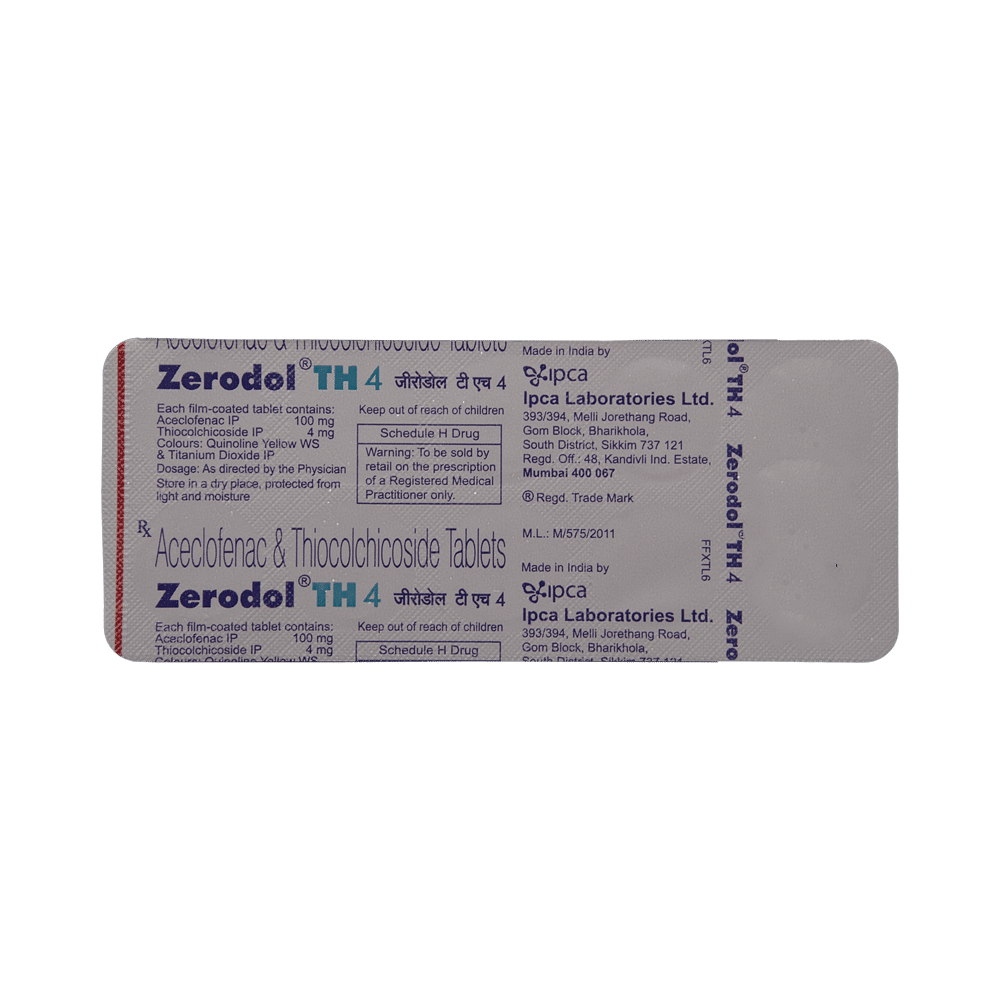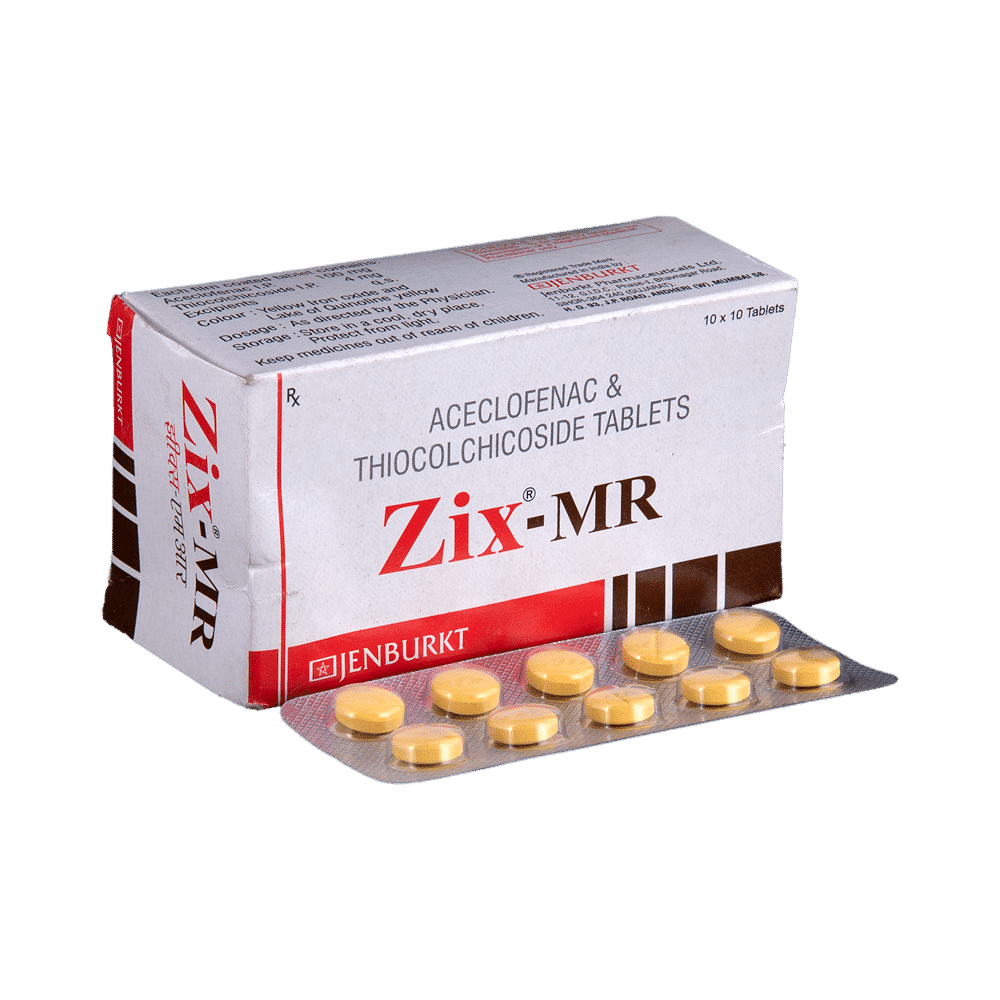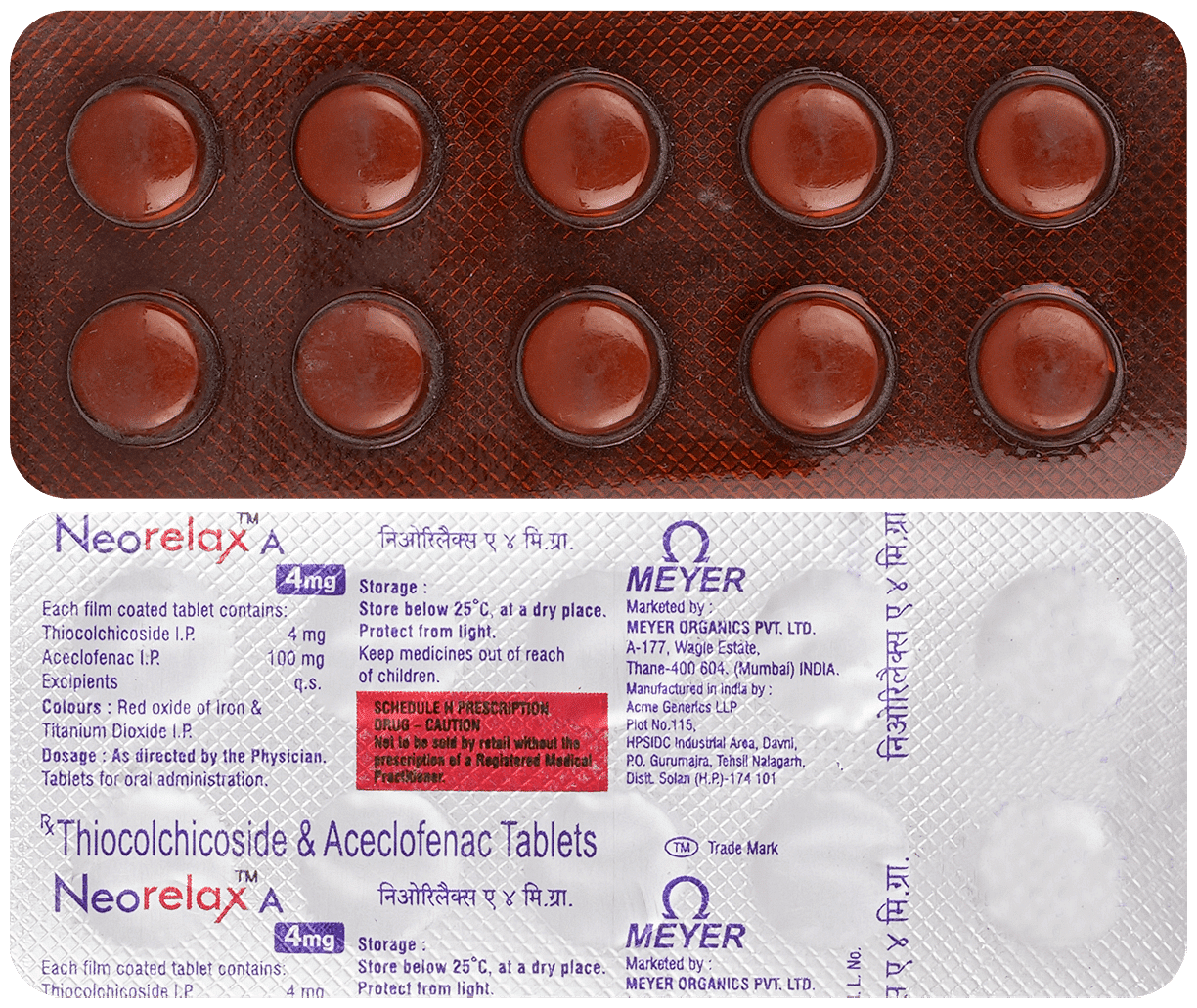
Thiorax 100mg/4mg Tablet
Manufacturer
Rax Health Care Pvt Ltd
Salt Composition
Aceclofenac (100mg) + Thiocolchicoside (4mg)
Key Information
Short Description
Thiorax 100mg/4mg Tablet is a combination medicine used in the treatment of pain due to muscle spasms.
Dosage Form
Tablet
Introduction
Thiorax 100mg/4mg Tablet should be taken with food. This will prevent you from getting an upset stomach. You should take it regularly as advised by your doctor. Do not take more or use it for a longer duration than recommended by your doctor.
Directions for Use
Take this medicine in the dose and duration as advised by your doctor. Swallow it as a whole. Do not chew, crush or break it..Thiorax 100mg/4mg Tablet is to be taken with food.
How it works
Thiorax 100mg/4mg Tablet is a combination of two medicines: Aceclofenac and Thiocolchicoside which relieves pain and relaxes the muscles.
Quick Tips
Thiorax 100mg/4mg Tablet helps relieve pain and muscle spasm that may occur due to strains, sprains, and muscle injuries. It is usually used along with rest and physical therapy. Take it with food to avoid an upset stomach. It may cause dizziness. Do not drive or do anything requiring concentration until you know how it affects you. Avoid consuming alcohol when taking Thiorax 100mg/4mg Tablet as it may cause excessive drowsiness.
Related Medicines

Zerodol TH 4 Tablet

Zix-MR Tablet

Neorelax A 4mg Tablet

Myomusc A 100mg/4mg Tablet

Acticross TH 100mg/4mg Tablet

Zimfe-TH 100mg/4mg Tablet

Quikace-TC4 Tablet

Consace TH 100mg/4mg Tablet

Thiozac A 100mg/4mg Tablet

Allitose-T Tablet
Frequently asked questions
What is Thiorax 100mg/4mg Tablet?
Thiorax 100mg/4mg Tablet is a combination medication containing Aceclofenac and Thiocolchicoside. It is used to relieve muscle pain by acting on the central nervous system and reducing chemical substances in the body that cause pain and inflammation.
Is it safe to use Thiorax 100mg/4mg Tablet?
Thiorax 100mg/4mg Tablet is generally considered safe for most patients. However, it may cause common side effects such as nausea, vomiting, stomach pain, heartburn, diarrhea, and other rare and uncommon side effects. Inform your doctor if you experience any persistent problems due to the medication.
Can the Thiorax 100mg/4mg Tablet be stopped when my pain is relieved?
Thiorax 100mg/4mg Tablet is typically used for short-term relief and can be discontinued when the pain subsides. However, it is essential to continue taking the medication as directed by your doctor if advised to do so.
Can the use of Thiorax 100mg/4mg Tablet cause dizziness?
Yes, Thiorax 100mg/4mg Tablet may cause dizziness (feeling faint, weak, unsteady, or lightheaded) in some patients. If you experience dizziness, it is recommended to rest for a while and resume the medication once you feel better.
Are there any specific contraindications associated with the use of Thiorax 100mg/4mg Tablet?
Thiorax 100mg/4mg Tablet is contraindicated in patients with a known allergy to painkillers or any of its components or excipients. It is also recommended to avoid this medication in patients with a history of stomach ulcers, active or recurrent stomach ulcers/bleeding, heart failure, high blood pressure, liver disease, or kidney disease.
Can Thiorax 100mg/4mg Tablet be taken with Vitamin B-complex?
Yes, Thiorax 100mg/4mg Tablet can be taken with Vitamin B-complex preparations. While Thiorax 100mg/4mg Tablet helps relieve pain, Vitamin B-complex can help correct vitamin deficiencies that may be contributing to your symptoms.
Can the use of Thiorax 100mg/4mg Tablet cause damage to kidneys?
Yes, the long-term use of Thiorax 100mg/4mg Tablet can potentially cause kidney damage. Normal kidneys produce a chemical called prostaglandins that protects them from damage. The use of painkillers can lower prostaglandin levels in the body, leading to kidney damage on long-term use. Patients with underlying kidney disease should avoid using painkillers.
Will Thiorax 100mg/4mg Tablet be more effective if taken in higher doses?
No, taking higher doses of Thiorax 100mg/4mg Tablet will not make it more effective, but rather increase the risk of side effects. If your symptoms persist or worsen, consult your doctor for re-evaluation and guidance.


